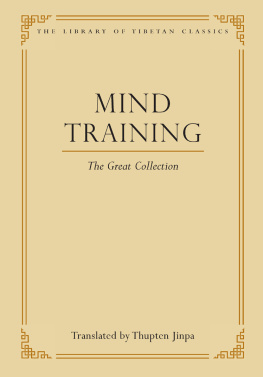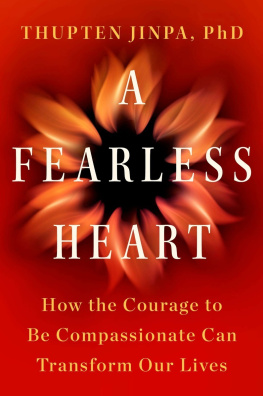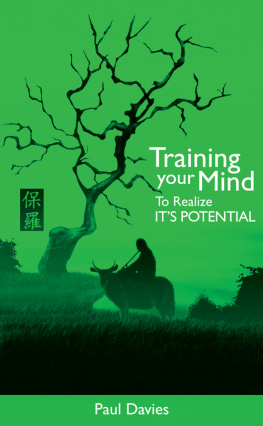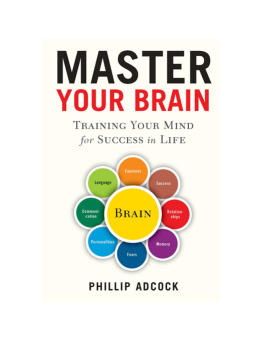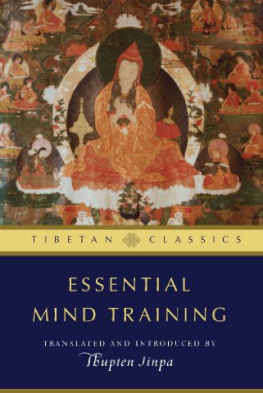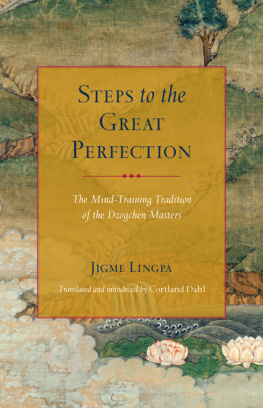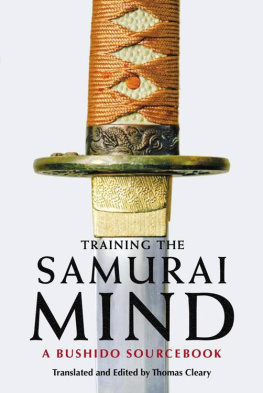Jinpa - Mind Training
Here you can read online Jinpa - Mind Training full text of the book (entire story) in english for free. Download pdf and epub, get meaning, cover and reviews about this ebook. year: 2004, publisher: Wisdom Publications, genre: Religion. Description of the work, (preface) as well as reviews are available. Best literature library LitArk.com created for fans of good reading and offers a wide selection of genres:
Romance novel
Science fiction
Adventure
Detective
Science
History
Home and family
Prose
Art
Politics
Computer
Non-fiction
Religion
Business
Children
Humor
Choose a favorite category and find really read worthwhile books. Enjoy immersion in the world of imagination, feel the emotions of the characters or learn something new for yourself, make an fascinating discovery.
Mind Training: summary, description and annotation
We offer to read an annotation, description, summary or preface (depends on what the author of the book "Mind Training" wrote himself). If you haven't found the necessary information about the book — write in the comments, we will try to find it.
Jinpa: author's other books
Who wrote Mind Training? Find out the surname, the name of the author of the book and a list of all author's works by series.
Mind Training — read online for free the complete book (whole text) full work
Below is the text of the book, divided by pages. System saving the place of the last page read, allows you to conveniently read the book "Mind Training" online for free, without having to search again every time where you left off. Put a bookmark, and you can go to the page where you finished reading at any time.
Font size:
Interval:
Bookmark:
T he Library of Tibetan Classics is a special series being developed by The Institute of Tibetan Classics to make key classical Tibetan texts part of the global literary and intellectual heritage. Eventually comprising thirty-two large volumes, the collection will contain over two hundred distinct texts by more than a hundred of the best-known Tibetan authors. These texts have been selected in consultation with the preeminent lineage holders of all the schools and other senior Tibetan scholars to represent the Tibetan literary tradition as a whole.
M IND T RAINING : T HE G REAT C OLLECTION
The Library of Tibetan Classics is a special series being developed by T HE I NSTITUTE OF T IBETAN C LASSICS aimed at making key classical Tibetan texts part of the global literary and intellectual heritage. Eventually comprising thirty-two large volumes, the collection will contain over two hundred distinct texts by more than a hundred of the best-known Tibetan authors. These texts have been selected in consultation with the preeminent lineage holders of all the schools and other senior Tibetan scholars to represent the Tibetan literary tradition as a whole. The works included in the series span more than a millennium and cover the vast expanse of classical Tibetan knowledgefrom the core teachings of the specific schools to such diverse fields as ethics, philosophy, psychology, Buddhist teachings and meditative practices, civic and social responsibilities, linguistics, medicine, astronomy and astrology, folklore, and historiography.
Mind Training: The Great Collection
Compiled by Shnu Gyalchok (ca. fourteenthfifteenth centuries) and Knchok Gyaltsen (13881469)
Compiled in the fifteenth century, Mind Training: The Great Collection (Theg pa chen po blo sbyong rgya rtsa) represents the earliest anthology of a special genre of Tibetan spiritual literature known simply as mind training or lojong in Tibetan. Tibetans revere the mind training tradition for its pragmatic and down-to-earth advice, especially the teachings on transforming adversities into favorable opportunities. This volume contains forty-three individual texts, including the most important works of the mind training cycle, such as Serlingpas Leveling out All Conceptions, Atias Bodhisattvas Jewel Garland, Langri Thangpas Eight Verses on Mind Training, and Chekawas Seven-Point Mind Training, together with the earliest commentaries on these seminal texts as well as other independent works. These texts expound the systematic cultivation of such altruistic thoughts and emotions as compassion, love, forbearance, and perseverance. Central to this discipline are the diverse practices for combating our habitual self-centeredness and the afflictive emotions and way of being that arise from it.

T HE TEXTS IN Mind Training: The Great Collection represent the flowering of an important spiritual culture dedicated to the perfection of the human heart. That process of perfection requires the radical altruism encapsulated in the famous mind training injunction to give the victory to others. In their birthplace of Tibet, these spiritual writings have inspired, nurtured, and transformed millions of people across generations.
Compiled in the fifteenth century, this collection is the earliest anthology of mind training (lojong) literature. This volume contains forty-three individual texts, including Serlingpas Leveling Out All Conceptions, Atias Bodhisattvas Jewel Garland, Langri Thangpas Eight Verses on Mind Training, Chekawas Seven-Point Mind Training, the earliest commentaries on these seminal texts, and other independent works.
The practice of mind training is based on the essential Mahayana teachings of impermanence, compassion, and the exchange of self and other that the eleventh-century master Atia brought to Tibet from India. The lojong teachings are a source of inspiration and guidance shared by masters of all Tibetan traditions. This makes Thupten Jinpas translation of Mind Training: The Great Collection a natural choice for publication as part of The Library of Tibetan Classics series. For the first time, this early collection of the instructions of the great Kadampa masters has been translated in its entirety. The clarity and raw power of these thousand-year-old teachings are astonishingly fresh, whether studied as a complete anthology or opened at random for inspiring verses on the heart of Buddhist practice.Buddhadharma: The Practitioners Quarterly
With the current rise of positive psychology, in which researchers are seeking a fresh vision of genuine happiness and well-being, this volume can break new ground in bridging the ancient wisdom of Buddhism with cutting-edge psychology. Such collaborative inquiry between spirituality and science is especially timely in todays troubled and divisive world.B. Alan Wallace, president, Santa Barbara Institute for Consciousness Studies
Message from the Dalai Lama
T HE LAST TWO MILLENNIA witnessed a tremendous proliferation of cultural and literary development in Tibet, the Land of Snows. Moreover, due to the inestimable contributions made by Tibets early spiritual kings, numerous Tibetan translators, and many great Indian paitas over a period of so many centuries, the teachings of the Buddha and the scholastic tradition of ancient Indias Nland monastic university became firmly rooted in Tibet. As evidenced from the historical writings, this flowering of Buddhist tradition in the country brought about the fulfillment of the deep spiritual aspirations of countless sentient beings. In particular, it contributed to the inner peace and tranquillity of the peoples of Tibet, Outer Mongoliaa country historically suffused with Tibetan Buddhism and its culturethe Tuva and Kalmuk regions in present-day Russia, the outer regions of mainland China, and the entire trans-Himalayan areas on the southern side, including Bhutan, Sikkim, Ladakh, Kinnaur, and Spiti. Today this tradition of Buddhism has the potential to make significant contributions to the welfare of the entire human family. I have no doubt that, when combined with the methods and insights of modern science, the Tibetan Buddhist cultural heritage and knowledge will help foster a more enlightened and compassionate human society, a humanity that is at peace with itself, with fellow sentient beings, and with the natural world at large.
It is for this reason I am delighted that the Institute of Tibetan Classics in Montreal, Canada, is compiling a thirty-volume series containing the works of many great Tibetan teachers, philosophers, scholars, and practitioners representing all major Tibetan schools and traditions. These important writings will be critically edited and annotated and will then be published in modern book format in a reference collection called The Library of Tibetan Classics, with their translations into other major languages to be followed later. While expressing my heartfelt commendation for this noble project, I pray and hope that The Library of Tibetan Classics will not only make these important Tibetan treatises accessible to scholars of Tibetan studies, but will create a new opportunity for younger Tibetans to study and take interest in their own rich and profound culture. Through translations into other languages, it is my sincere hope that millions of fellow citizens of the wider human family will also be able to share in the joy of engaging with Tibets classical literary heritage, textual riches that have been such a great source of joy and inspiration to me personally for so long.

Font size:
Interval:
Bookmark:
Similar books «Mind Training»
Look at similar books to Mind Training. We have selected literature similar in name and meaning in the hope of providing readers with more options to find new, interesting, not yet read works.
Discussion, reviews of the book Mind Training and just readers' own opinions. Leave your comments, write what you think about the work, its meaning or the main characters. Specify what exactly you liked and what you didn't like, and why you think so.

